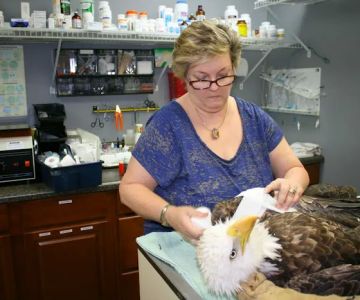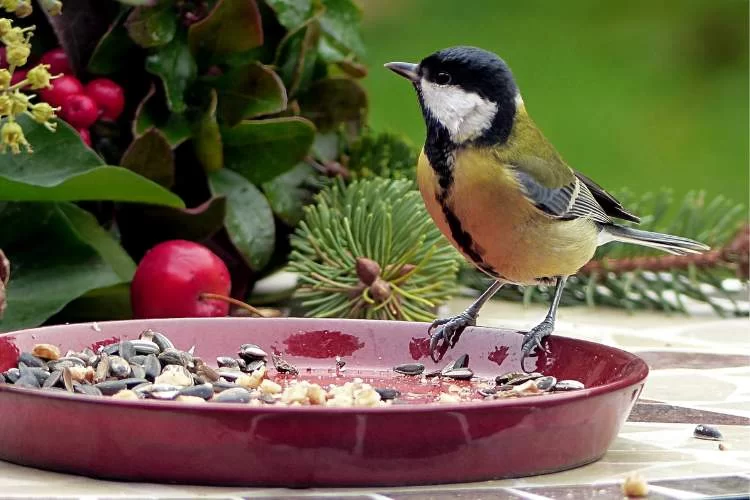- Importance-of-Nutrition-for-Finches
- Key-Ingredients-for-Homemade-Bird-Seed-Mixes
- Step-by-Step-Guide-to-Making-Finch-Seed-Mix
- Real-Life-Examples-and-User-Experiences
- Where-to-Find-Quality-Bird-Feeding-Products
1. Importance of Nutrition for Finches
Feeding finches a well-balanced diet is crucial for their health, vitality, and longevity. Many bird enthusiasts underestimate how much nutrition impacts their finches’ plumage, energy, and immune system. A homemade bird seed mix tailored specifically for finches can provide the right balance of seeds, vitamins, and minerals that commercial mixes might lack or dilute. Understanding finch nutritional needs involves knowing the types of seeds they naturally prefer and how to supplement them with additional nutrients.
Finches primarily consume small seeds like millet, canary seed, and niger seed. However, offering a variety of seeds combined with natural supplements like dried fruits or tiny amounts of egg food can enhance their diet. Creating your own bird seed blend allows precise control over the ingredients, ensuring your finches get fresh, high-quality food without unnecessary fillers or additives. This approach also helps in avoiding certain allergens or contaminants sometimes found in mass-produced mixes.
1.1 Why Homemade Mixes Outperform Store-Bought Options
Commercial finch seed mixes often include generic seeds that don’t cater to the specific dietary preferences of finches. Furthermore, these mixes might contain broken seeds or dust that birds tend to avoid, leading to wasted food and insufficient nutrition. Homemade bird seed mixes, on the other hand, can be tailored based on the bird species, regional availability of seeds, and seasonal changes, maximizing palatability and health benefits.

8177 W Grover Cleveland Blvd, Homosassa, FL 34446, USA
See Details1.2 The Role of Supplements in Finch Diets
In addition to seeds, finches benefit from supplemental nutrition such as grit, calcium sources, and occasional treats like fresh vegetables or egg food. These additions are essential for digestion, bone health, and overall vitality. Including these elements in a homemade bird seed mix can elevate your finches’ health to new levels.
2. Key Ingredients for Homemade Bird Seed Mixes
Creating an effective homemade bird seed mix for finches starts with selecting the right seeds and additives. Here’s a breakdown of essential ingredients:
2.1 Primary Seeds
Millet: A favorite among finches, millet is small, easy to digest, and provides good carbohydrates.
Canary Seed: This seed is nutritious and loved for its soft texture, ideal for finch beaks.
Niger Seed: High in oil content, niger seed supports healthy feathers and energy levels.
2.2 Supplementary Ingredients
Hemp Seeds: These add protein and beneficial oils to the mix.
Flaxseed: Rich in omega-3 fatty acids, supporting immune health.
Dried Fruits and Herbs: Small quantities of dried apple or herbs like chamomile can enrich the diet and provide antioxidants.
2.3 Avoiding Harmful Additives
It’s important to avoid salt, sugar, artificial colors, and preservatives, as these can harm finches. Homemade mixes give you full control to exclude these unwanted substances, promoting a safer feeding experience.
3. Step-by-Step Guide to Making Finch Seed Mix
Making a homemade bird seed mix is simple yet requires careful measurement and quality ingredients to ensure effectiveness and palatability. Here is a detailed process to prepare your blend:
3.1 Gather High-Quality Seeds
Purchase seeds from trusted suppliers or specialty bird stores to guarantee freshness and avoid mold or pests. Quality matters greatly in bird health.
3.2 Measure and Mix Ingredients
A balanced recipe example could be: 40% millet, 30% canary seed, 20% niger seed, and 10% supplementary seeds like hemp or flax. Mix thoroughly to ensure even distribution.
3.3 Storage and Freshness
Store your homemade mix in airtight containers away from moisture and heat to preserve nutrient quality. Rotate batches every few weeks to maintain freshness, as stale seeds lose nutritional value.
3.4 Introducing the Mix to Your Finches
Gradually introduce the new seed mix by mixing it with their current food to avoid rejection. Observe their preferences and adjust ratios if certain seeds are consistently ignored.
4. Real-Life Examples and User Experiences
Many bird owners share stories about how switching to homemade bird seed mixes transformed their finches’ health and behavior. One such case is from a finch enthusiast in Oregon who struggled with her birds’ dull feathers and low activity. After consulting with avian nutritionists and trying a homemade blend rich in niger seed and flaxseed, her finches showed remarkable improvements in energy and plumage brightness within weeks.
Another example is a community bird feeder program in the Midwest, where volunteers switched to DIY finch seed blends. They reported increased bird visits and better overall bird health in local finch populations. These real-world outcomes highlight the benefits of personalized nutrition and the power of homemade mixes to positively impact bird wellbeing.
4.1 Expert Opinions and Veterinary Recommendations
Veterinarians specializing in avian care, such as those at Hidden Brook Veterinary, emphasize the importance of balanced diets and recommend homemade seed mixes tailored to finches. They advise bird owners to monitor seed quality and supplement diets with calcium and vitamins as needed.
5. Where to Find Quality Bird Feeding Products
To make your homemade bird seed mixes as effective as possible, sourcing quality seeds and supplements is key. Hidden Brook Veterinary offers a curated selection of seeds, supplements, and feeding accessories specifically recommended for finch diets. Their expert team can help you choose the best products that fit your birds’ nutritional needs and lifestyle.
In addition to seeds, they provide guidance on feeders, grit, and other essentials to create a safe and healthy feeding environment. Whether you are a beginner or an experienced bird owner, consulting with professionals ensures your finches receive the highest care standards.











